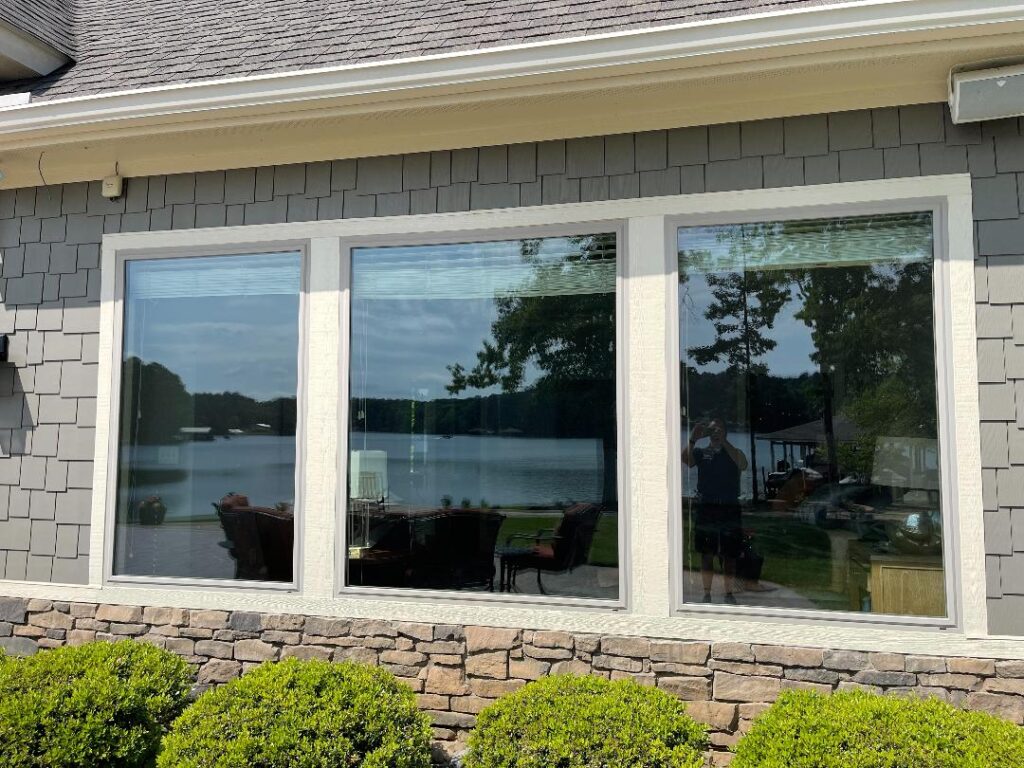Residential Window Tint: The Eco-Friendly Option for Your Home
Residential Window Tint: The Eco-Friendly Option for Your Home
Blog Article
How Residential Home Window Tinting Improves Your Home's Energy Performance
Residential home window tinting offers an engaging solution for home owners seeking to improve energy performance within their space. By applying specialized movies to windows, it effectively minimizes warmth transfer, therefore maintaining indoor temperatures and lessening the requirement for too much home heating or air conditioning. This not just stops power usage yet likewise supplies an extra comfortable setting by reducing glare. Nonetheless, understanding the nuances of just how tinting works and picking the appropriate kind for your home can be critical. Oddly, what variables should one take into consideration before making this financial investment?
Recognizing Home Window Tinting
Recognizing home window tinting is crucial for home owners seeking to improve both convenience and power effectiveness in their living spaces. Residential Window Tint. Window tinting includes the application of a thin film to the inside or exterior surface area of glass windows. This movie can significantly regulate the amount of sunlight and warmth that gets in a home, thus influencing interior environment conditions
There are numerous types of home window tinting movies offered, each with distinct residential or commercial properties. The performance of window tinting is usually determined by its Visible Light Transmission (VLT) percentage, which indicates exactly how much light can pass via the film.
Advantages of Energy Efficiency
Home window tinting not just boosts looks however additionally plays a significant duty in improving energy effectiveness within household spaces. By lowering warmth transfer through home windows, tinted films produce a more steady interior climate, which can cause considerable reductions in energy consumption for heating and cooling. This energy efficiency translates into reduced utility costs, giving home owners with significant long-lasting savings.

Additionally, home window tinting enhances the comfort of living spaces. By decreasing glare and obstructing unsafe UV rays, tinted windows develop an even more pleasurable environment, which can bring about improved health for residents. The protection versus UV rays also helps maintain furnishings and flooring from fading, adding to the long life of household items.
How Tinting Works
Tinting films operate through a combination of sophisticated materials and technologies created to manage the quantity of solar energy going into a home. Mostly made up of polyester, these movies typically incorporate metal or ceramic particles that reflect and absorb warm. This double capability permits them to substantially decrease the penetration of ultraviolet (UV) rays and infrared radiation while allowing visible light to pass through.
The efficiency of home window tinting is gauged by its solar heat gain coefficient (SHGC), which suggests just how much solar power is sent with the window. Lower SHGC values are better as they signify greater heat being rejected. Furthermore, home window colors can include a variety of tones, allowing home owners to customize their aesthetic choices while enhancing power effectiveness.
Additionally, these movies work as an obstacle, avoiding warmth loss throughout colder months by showing interior heat back right into the space. This thermal insulation effect matches the cooling advantages gotten during warmer months, adding to a balanced indoor climate year-round. By managing solar power properly, domestic window tinting not just improves comfort however additionally plays an important duty in decreasing energy intake and reducing energy bills.
Selecting the Right Tint

There are various types of home window films readily available, consisting of dyed, metalized, and ceramic. Ceramic films supply excellent warm control without compromising exposure and are very long lasting, making them a popular option.
Visible light transmission (VLT) is one more vital variable, as it suggests the amount of natural light that can pass via the colored glass. Homeowners must pick a color with a VLT that enhances their lights preferences while still offering sufficient glare reduction.
Additionally, examining the solar heat gain coefficient (SHGC) can assist establish exactly how well a color can obstruct warm from sunlight. A lower Visit Website SHGC shows much better warmth control, ultimately enhancing energy effectiveness.
Installation and Maintenance Tips
Appropriate installation and upkeep are important components in optimizing the benefits of property home window tinting. To accomplish ideal results, it is a good idea to hire a qualified specialist for setup. This guarantees that the color is applied properly, preventing air bubbles, wrinkles, or misalignment that can endanger efficiency. Experts likewise utilize specialized tools and strategies, which can enhance the sturdiness and performance of the color.
Adhering to setup, upkeep is important to extend the life of the home window film. It is recommended to wait at least 30 days prior to cleansing the tinted windows to allow the adhesive to cure completely.
Resolving these concerns promptly can prevent more damages and maintain power performance. By sticking to these installment and upkeep suggestions, home owners can guarantee their home window tinting continues to provide significant energy savings and comfort for years to come.
Conclusion
In conclusion, residential home window tinting offers as an efficient service for boosting energy efficiency within homes. By lowering warm transfer and blocking harmful UV rays, window movies add to decrease energy consumption and improved indoor comfort.
Window tinting involves the application of a slim movie to the inside or outside surface area of glass home windows. By lowering heat transfer via home windows, tinted movies develop a more secure indoor environment, which can lead to substantial reductions in power intake for heating and cooling.The efficiency of home window tinting is gauged by its solar heat gain coefficient (SHGC), which shows just how much solar energy is sent with the her comment is here home window. By taking care of solar energy effectively, property window tinting not only enhances convenience yet also plays a crucial browse around this web-site function in reducing energy intake and reducing utility bills.
By lowering warmth transfer and obstructing harmful UV rays, window movies add to reduce power usage and boosted interior convenience.
Report this page